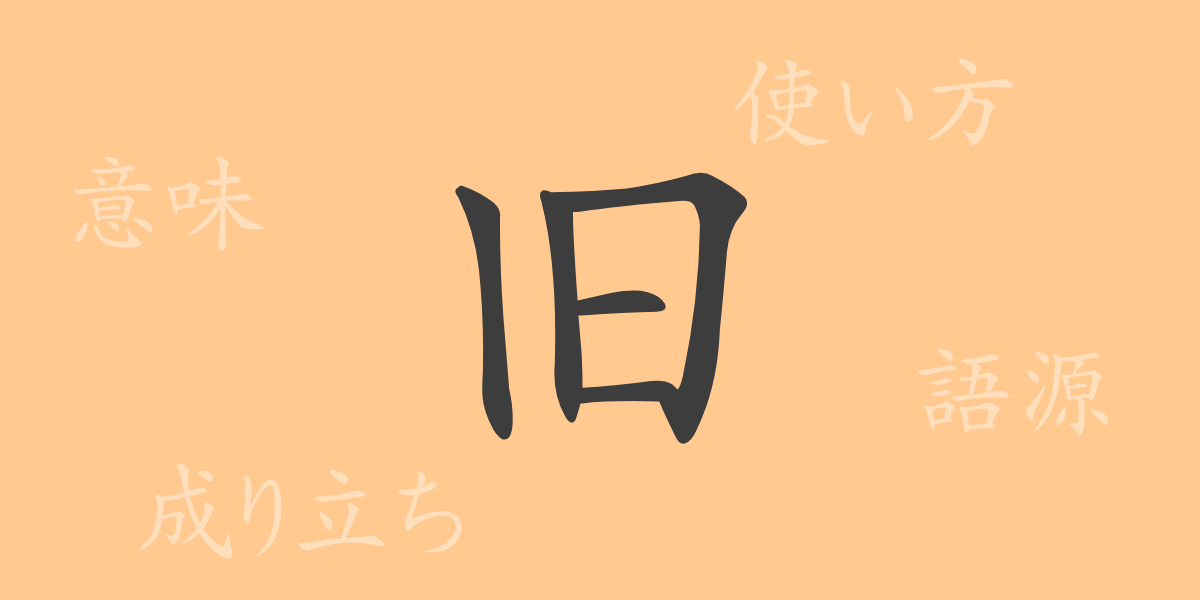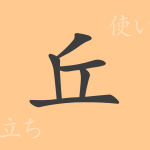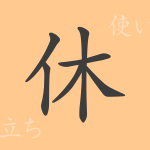The beauty of the Japanese language lies in the deep history and meaning embedded in each character. The common-use kanji “旧” (きゅう, kyuu) is no exception, frequently appearing in our daily lives, carrying with it an interesting origin and rich expressions. This article delves into the allure of “旧” (きゅう, kyuu), exploring its etymology, modern usage, and idioms and proverbs that incorporate this character.
Origin of 旧 (語源)
The kanji “旧” (きゅう, kyuu) signifies something old or former, and its shape is derived from the character for old clothing, “衣” (ころも, koromo). In ancient China, the concept of new things becoming old was expressed through the transformation of clothing. Thus, “旧” (きゅう, kyuu) came to represent a state altered by the passage of time. This character symbolizes nostalgia for the past and the process of change.
Meaning and Usage of 旧 (きゅう, kyuu)
The kanji “旧” (きゅう, kyuu) means “old” or “former,” and is primarily used to refer to situations or things related to the passage of time. For example, “旧友” (きゅうゆう, kyuu yuu) means “old friend,” and “旧姓” (きゅうせい, kyuu sei) refers to a “maiden name.” This kanji is frequently used in everyday conversation as well as in official documents to denote transitions between the old and new.
Reading, Stroke Count, and Radical of 旧 (きゅう, kyuu)
The kanji “旧” (きゅう, kyuu) is widely recognized for its shape and meaning. Here is some basic information about “旧” (きゅう, kyuu):
- Reading: The on-yomi (Chinese reading) is “キュウ” (kyuu); it has no kun-yomi (Japanese reading).
- Stroke count: 9 strokes.
- Radical: 旡 (きょうのつくり, kyou no tsukuri).
Idioms, Proverbs, and Expressions Using 旧 (きゅう, kyuu)
The kanji “旧” (きゅう, kyuu) is used in many idioms, proverbs, and expressions. Here are a few examples along with their meanings:
- 旧態依然 (きゅうたいいぜん, kyuutai izen): Remaining unchanged as in the old days.
- 旧知の仲 (きゅうちのなか, kyuuchi no naka): Long-standing acquaintanceship.
- 旧交を温める (きゅうこうをあたためる, kyuukou o atatameru): Renewing old friendships.
- 旧習を脱する (きゅうしゅうをだっする, kyuushuu o dassuru): Breaking away from old habits or customs.
- 新旧交代 (しんきゅうこうたい, shinkyuu koutai): The replacement of the old with the new.
Summary of 旧 (きゅう, kyuu)
The kanji “旧” (きゅう, kyuu) plays an important role in the Japanese language as a character that bridges the past and present, symbolizing the universal theme of change. It continues to live on in our language, reflecting the depth of Japanese culture. Through this article, we hope you have gained an appreciation for the multifaceted charm of “旧” (きゅう, kyuu).

























